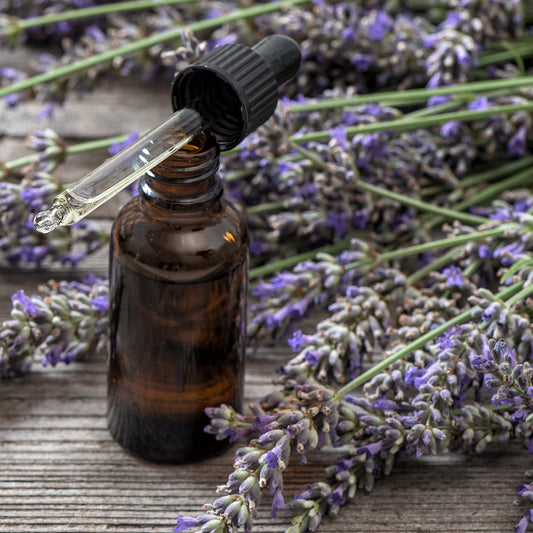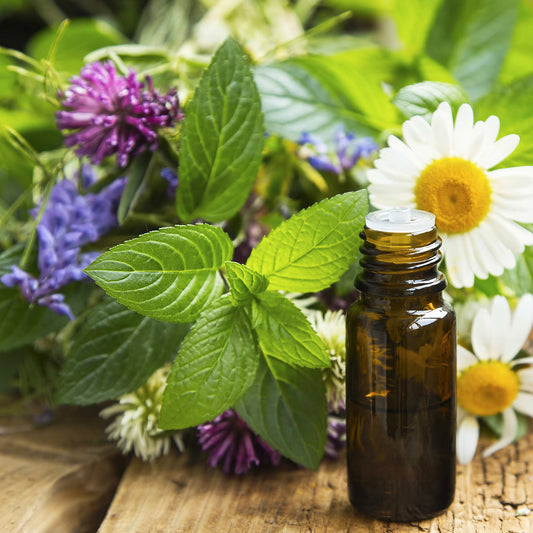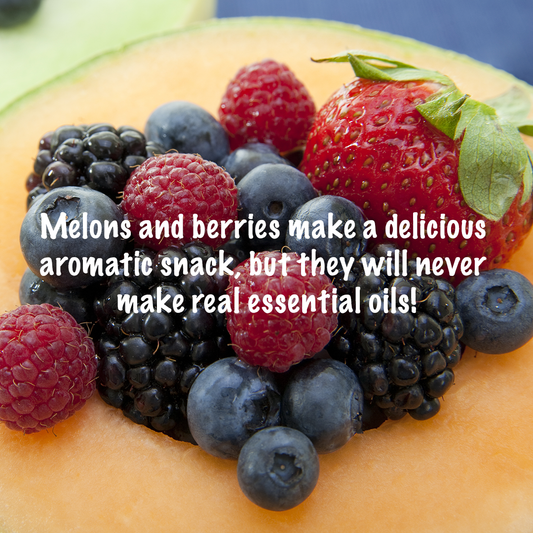How do we decide which scents NOT to use?
We often receive emails asking for specific essential oils or other scents.
One of my favorite activities is scent blending to come up with just the right aromatic qualities. However, since we choose not to use a variety of scent types, we are limited in the number of scent profiles we can create.
Below are some the factors we consider.
Method of Extraction
 The aromatic essential oil compounds are stored in tiny pockets in plant material and must be extracted to be released. The type of plant material (leaves, flowers, roots) being used determines which method of extraction will produce the best results.
The aromatic essential oil compounds are stored in tiny pockets in plant material and must be extracted to be released. The type of plant material (leaves, flowers, roots) being used determines which method of extraction will produce the best results.
We use only true essential oils. "True essential oils" are only extracted either by steam distillation or, in the case of citrus oils, expression.
Some aromatic scents come from delicate botanicals for which expression will not work and they cannot tolerate high-heat steam distillation.
As a result, the aromatic compounds of many flowers, such as neroli (orange blossom), jasmine, and rose must be extracted or pulled out from the plant material using a solvent. Although there are many types of solvents, they are often chemical petroleum solvents, like hexane.
When solvents are used there are always some solvent residues left in the product after production. These oils cannot be certified organic.
We do not use any aromatics extracted using petroleum solvents.
Learn More Blog: How Essential Oils Are Extracted
Endangered Plants
 Since Rosewood, Sandalwood, and Frankincense essential oils come from plants that are endangered or becoming scarce due to over-harvesting, we will only use these essential oils if they come from sustainably managed forests.
Since Rosewood, Sandalwood, and Frankincense essential oils come from plants that are endangered or becoming scarce due to over-harvesting, we will only use these essential oils if they come from sustainably managed forests.
To produce even a small amount of essential oil, a large amount of plant material is required.
So, when we discuss essential oil sustainability, we are really talking about the sustainability and conservation of the plants that are used to produce those essential oils.
We are committed to using essential oils that are grown and harvested in an ecologically and socially responsible manner.
Learn More Blog: Will Using Real Essential Oils Deplete Natural Resources?
Essential Oil Cost
 Some essential oils are just too pricey. The price of an essential oil is based on its availability, ease of harvest and extraction, and how much plant material is needed to produce the oil.
Some essential oils are just too pricey. The price of an essential oil is based on its availability, ease of harvest and extraction, and how much plant material is needed to produce the oil.
For example helichrysum essential oil is relatively pricey compared to other essential oils. Steam distilled from the hand-harvested blossoms, it takes approximately 1 ton of flowers to produce just over 2 pounds of essential oil. The cost for one ounce is over $150.00
Be suspicious of companies selling soap and other skincare products that supposedly contain high-priced essential oils without an expensive price tag.
There is no requirement to list all of the ingredients used in the manufacture of soap. Even for skin care products companies can mix a small amount of any essential oil, like helichrysum, with the fragrance oil and still claim that the product is "scented with pure helichrysum essential oil." Also they may be purchasing cheap substandard oils that have been adulterated with filler oils.
Kiwi, Watermelon & Cucumber . . . Oh, My!
 We do not use synthetic fragrance oils, natural fragrance oils, or nature identical oils.
We do not use synthetic fragrance oils, natural fragrance oils, or nature identical oils.
While there are many lovely smelling fragrance oils, like peach mango, watermelon, and apple pie, these oils are not natural.
Essential oils contain only the distilled essence of a plant, but perfume and fragrance oils are created in a laboratory and provide no medicinal or aromatherapeutic properties.
It is unfortunate that some companies sell bottles of fragrance or perfume oils or products made with fragrance oils and label them with the word "aromatherapy." Since the use of the word aromatherapy isn't regulated by the U.S. Government, companies can get away with this.
We only use pure botanical essential oils to scent our natural skincare products.

Why We Use Only Real Plant Essential Oils?
How Essential Oils Are Extracted
How to Diffuse Essential Oils for Personal Use
Why Are Synthetic Fragrance Oils So Popular?
Natural Fragrance Oil? . . . Really?


